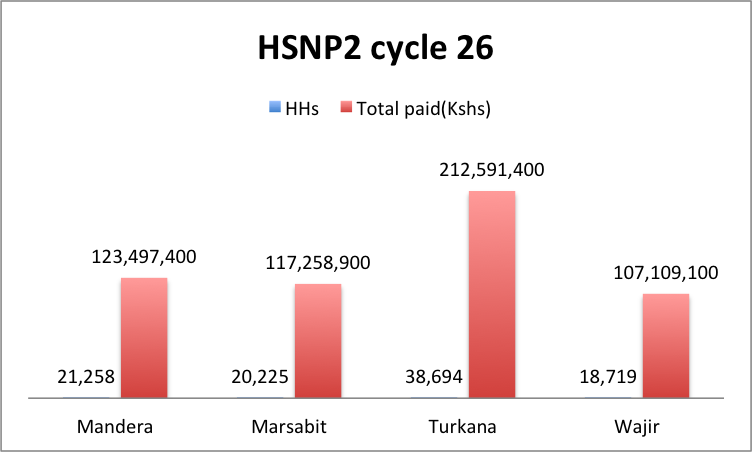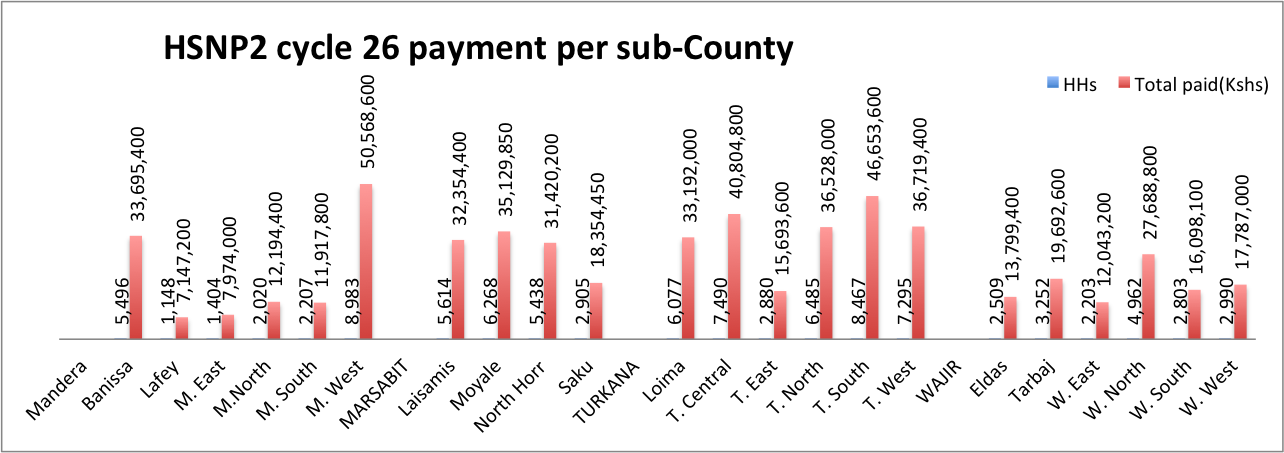 HSNP2 Cycle 26On 15 September 2017, HSNP2 paid Kshs. 560,940,300 to 98,896 households across the four poorest and arid Counties of Turkana, Wajir, Mandera and Marsabit. This disbursement was made to the Group 1 households- those who receive unconditional bi-monthly cash transfers. 98,896 households constitute those that meet the threshold of being the poorest in terms of poverty ranking.
HSNP2 Cycle 26On 15 September 2017, HSNP2 paid Kshs. 560,940,300 to 98,896 households across the four poorest and arid Counties of Turkana, Wajir, Mandera and Marsabit. This disbursement was made to the Group 1 households- those who receive unconditional bi-monthly cash transfers. 98,896 households constitute those that meet the threshold of being the poorest in terms of poverty ranking.
HSNP2 regular cash tranfers has proven to be an effective social protection (social assistance) measure for addressing cases of chronic poverty at the household level. HSNP2 impact evaluation studies have proven that cash tranfers have a significant positive impact on local economy (boosting of livelihoods, markets) , social norms (women empowernment), poverty and well-being (reduced stress, boosted confident and worthiness) to mention but a few. In addition, the bulk of the cash is used to meet the basic needs of the household members e.g. able to have larger and more frequent portion of food, buy uniform and other essentials required to access education, pay for medical services and medicine.
The impact on local economy has been manifested by the increased number and frequency of small scale trading not only in urban setting but also in the rural remote areas. Women who consitute 60% of primary recipients of HSNP2 cash tranfers have greatly benefitted in multiple ways including financial inclusion. As a result of HSNP programme, and in specific, the mode of payment delivery through active bank accounts that require valid National IDs (according to the Central Bank's regulation of Know Your Customer), initially,a significant number of target beneficiaries and in specific women in rural remote areas did not have IDs. Thus, HSNP has made the community especially the poorest households have a need for National IDs at the same time enabled them realise their wider rights through the acquisition and use of National IDs beyond cash transfers. In addition, some of the women have started table "kiosks" to sell household essentials like sugar, grains and grocers to boost their livelihoods.
 HSNP2 Cycle 26 per sub-County
HSNP2 Cycle 26 per sub-County
